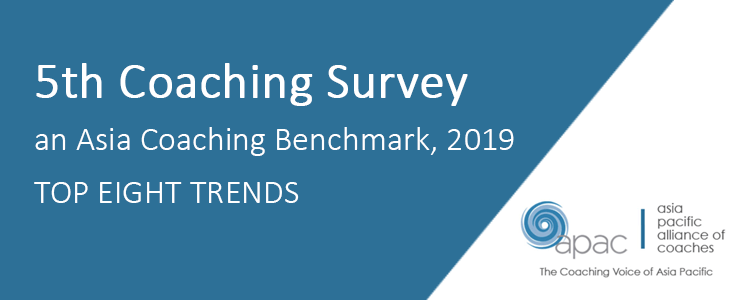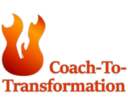

Top Trends from the 5 th Coaching Survey – An Asia Coaching Benchmark, 2019
- May 07th 2020
Interesting trends in the profession of coaching have emerged, as seen in edition 1.1. of the 5th Coaching Survey – An Asia Coaching Benchmark [2019] owned by Asia Pacific Alliance of Coaches.
Published in April 2020, and co-sponsored by Coach-To-Transformation, the report represents survey results from the markets of Hong Kong, India, Indonesia, Mainland China, Philippines, and Singapore. Findings suggest a rising demand for coaching services, differentiation among coaching professionals, need for more quantifiable ways of measuring coaching impact, and the increasing importance of strong credentials.
Let us quickly take a look at the top trends that feature in the 2020 report:
- A rise in demand for niche coaching services
The openness of business firms toward introducing coaching services across the hierarchy has risen, with new sectors such as start-ups, entrepreneurs, NGOs (Non-governmental organizations), and educational institutions adding to this demand. Moreover, the survey reveals a considerable prevalence of coaching in local languages and its application in niches of maternity, spirituality, and cross-culture dynamics.
- Comparison of the Efficacy of Internal Coaches (ICs) and External Coaches (ECs)
While companies continue to deploy a combination of External and Internal Coaches for their executive coaching needs, the perception is getting more differentiated.
- Although Internal Coaches are mostly (84%) seen as more cost-effective, critical concerns remain – such as confidentiality and neutrality (65%). In addition to that, the role of ICs is not well defined as their coaching role is less than 25% of overall job responsibility.
- On the other hand, well-credentialed External Coaches exhibit richer experience and spend more time in professional skill development. 41% of ECs and 23% of ICs spend 60 (sixty) or more hours on continuous professional development. 32% of ECs and 26% of ICs also use formal coaching supervision.
- Although Internal Coaches are mostly (84%) seen as more cost-effective, critical concerns remain – such as confidentiality and neutrality (65%). In addition to that, the role of ICs is not well defined as their coaching role is less than 25% of overall job responsibility.
- Cultural Dynamics Influencing the Understanding of Coaching in Asia
The survey reveals that coaching is perceived differently in Asia, with particular emphasis on ‘guidance,’ ‘sharing expertise,’ and ‘problem-solving.’ It may be primarily due to the high power-distance prevalent in Asian countries – which also highlights the need for a more customized approach to coaching for the Asia-Pacific region
- Acknowledgment of Coaching Impact and Demand for Greater Measurability
84% of the companies reported some impact of coaching on their bottom line. The respondents also revealed having received benefits they ‘did not seek from coaching’ – signaling a need for more clarity on the objective setting. We also see a demand for greater transparency in coachees’ assessment results and an increased emphasis on the credentials of a coach. Given these requirements, trustworthy coach training programs will become all the more valuable.
- AI-Based Coaching Tools on the Anvil
While, currently, almost 85% of both Internal and External Coaches are not using any AI tools for coaching, a majority of companies were open to implementing some form of technology in the future.
The above trends, as seen in the report, clearly indicate a promising future for a coach in the Asia-Pacific region. It will be interesting to see how the coaching market evolves in South-East Asia with an increase in both demand and supply.


Rajat Garg
Rajat is a Master Certified Coach (MCC) with over 18 years of industry experience and over 2500 hours of coaching experience, helping people and organizations attain maximum effectiveness. His background includes working with CXOs, senior managers, managers and board of directors of small private companies to multi-billion dollar publicly traded organizations.









0